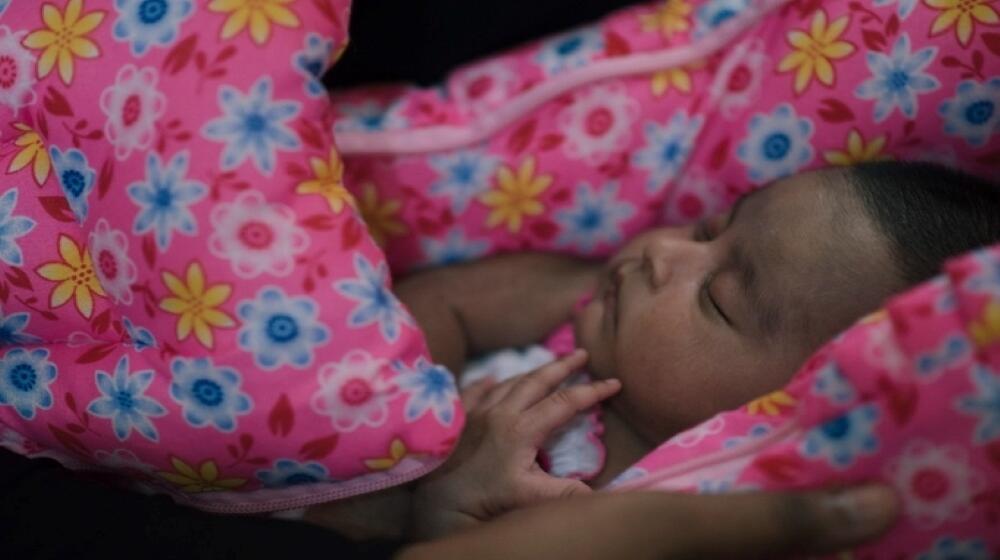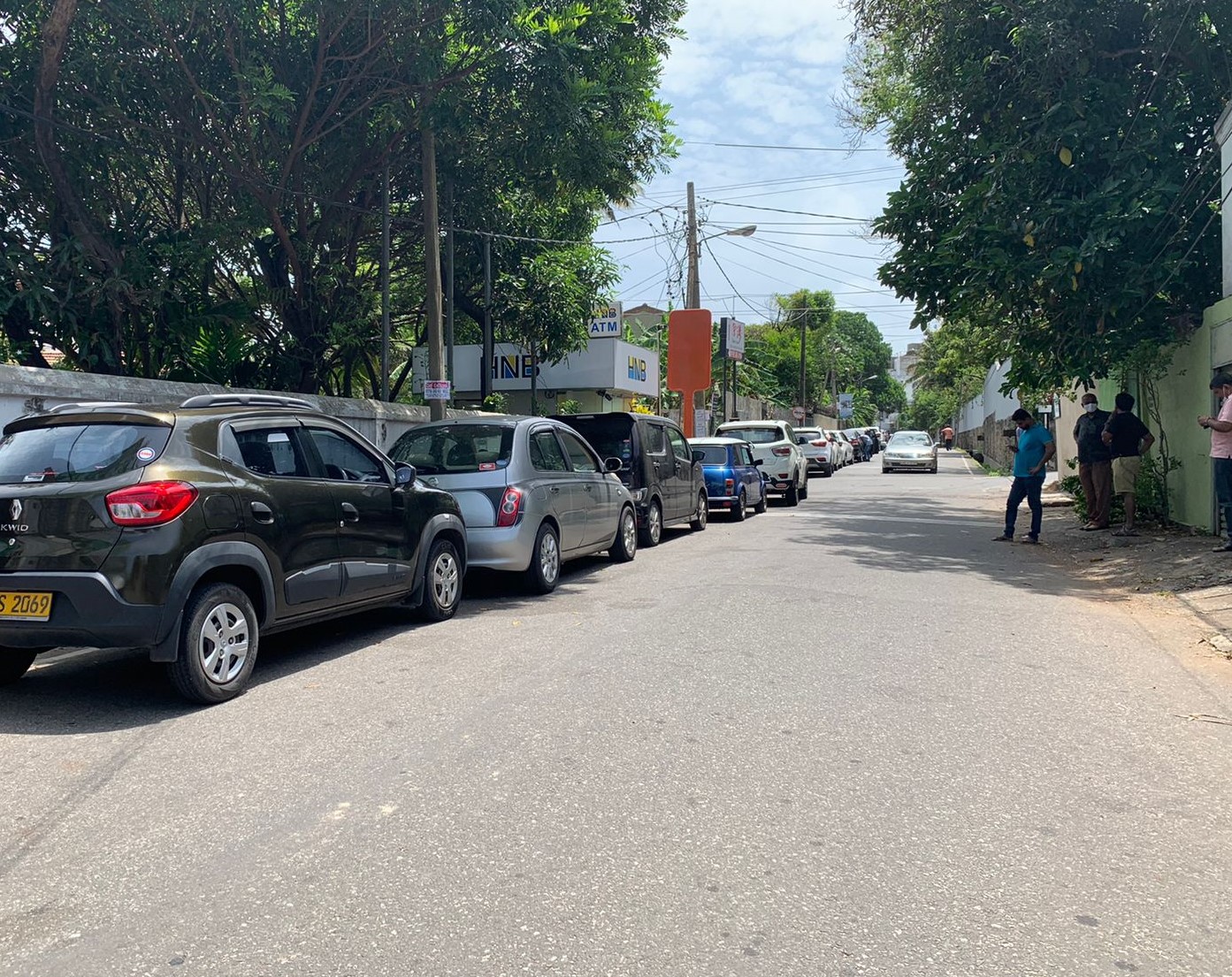When Ruchika found out she was pregnant with her second child in October last year she felt confident that she knew what to expect. Nine months later, she spent the day before her delivery in a fuel queue pleading with an army officer and restless crowds so she could buy fuel to get to the hospital the next day and deliver her baby.
“The majority of the crowd was sympathetic,” Ruchika says. “The authorities allowed me to buy the fuel I needed after examining my medical documents to confirm my story, but there were still a few who were shouting at us.”
Before the crisis, 99% of deliveries in Sri Lanka took place in healthcare facilities. Lack of access to transport due to the economic crisis will risk thousands of women being unable to get to a hospital or clinic in time. Ruchika made it to the hospital the next day but fuel was not the only struggle she faced to bring her baby safely to the world.
Two months before her due date, Ruchika saw a post online from a woman who was asked by a state hospital to bring her own gloves, blades and other basic materials needed for her delivery. “The hospital had run out and had no way to replenish their stocks,” Ruchika says. “I immediately called my doctor and asked about the availability of materials and if I needed to make preparations as well.”
Ruchika saw a post online from a woman who was asked by a state hospital to bring her own gloves, blades and other basic materials needed for her delivery.
“’We have the equipment for now,’ is what he told me,” she recalls. “But he couldn’t give me any assurances about what the situation would be in two months for my delivery. I was worried about how bad things would get so I asked my doctor twice if my baby could be delivered safely even if it was two months early.”
The doctor refused and said the risk to the baby’s health was too high to consider inducing. “He assured me that as long as I got to the hospital in time he would make sure we were both healthy but even that was such a struggle. The week before my delivery my husband asked about my doctor’s fuel status because we’d heard so many stories of doctors and nurses not being able to report to work because of the fuel crisis.”
“We’d heard so many stories of doctors and nurses not being able to report to work because of the fuel crisis.”
Ruchika’s 4-and-a-half-year-old daughter got sick the week her new baby was born and they had to go to six pharmacies to find a nebulizer so she could get the treatment she needed. Weeks after giving birth, Ruchika is past the date she was due to get her stitches removed. She is waiting for her doctor to let her know when she can come in as the doctor is required to save the limited fuel he has to travel only when one of his other patients goes into active labor.
215,000 women like Ruchika are currently pregnant in Sri Lanka and 145,000 will give birth in the next six months. 60,000 of these women may require surgical interventions. As the United Nations sexual and reproductive health agency, UNFPA is on the ground working to meet the critical health and protection needs of the most vulnerable women and girls.
We are getting pregnant women the supplies, medication and cash and voucher assistance they need to have a safe pregnancy and childbirth. We are keeping shelters open with expanded services so more women have a safe space to turn to and providing life-saving medication for women and young people.
UNFPA, together with our partners, will continue to support the life-saving health and protection needs of women and girls during the socio-economic crisis while strengthening institutional capacities to respond to public health emergencies.




